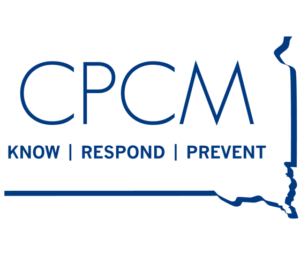Through a partnership with Children’s Home Society of South Dakota, 26,000 South Dakotans have been trained about the impacts of trauma, the ACEs study, and how to support positive change within a community. Trainings are available by request, free for South Dakota communities and organizations.
Why Adverse Childhood Experiences Matter
Adverse Childhood Experiences can include:
- Experiencing violence, abuse, or neglect.
- Witnessing violence in the home or community.
- Having a family member attempt or die by suicide.
- Substance use problems in the home.
- Mental health problems.
- Instability due to parental separation or household members in jail or prison.
Impact of Adverse Childhood Experiences:
Adverse Childhood Experiences can have long-term impacts into adulthood. Effects can be experienced on physical health, mental well-being, as well as educational and job opportunities. ACEs impacts can include:
- Increased risk of injury, sexually transmitted infections, maternal and child health problems (including teen pregnancy, pregnancy complications, and fetal death), and involvement in sex trafficking.
- Increased risk of a wide range of chronic diseases and leading causes of death such as cancer, diabetes, heart disease, and suicide.
- Toxic stress from ACEs can negatively affect children’s brain development, immune systems, and stress-response systems, changing children’s attention, decision-making, and learning skills.
- Toxic stress in childhood may lead to difficulty forming healthy and stable relationships, and struggles with finances, jobs, and depression throughout life.
Studies have shown:
- People with 1 or more ACE have an increased risk of cancer, heart disease, depression, and obesity.
- People with an ACE score of 6 or higher are at risk of their lifespan being shortened by 20 years.
- People with an ACE score of 7 or 8 are 3 times more likely to have cardiovascular disease as an adult.
- 61% of adults had at least one ACE and 16% had four or more types of ACEs before age 18.
What can we do?
Preventing adverse childhood experiences can have significant long-term impact.
- By preventing ACEs, up to 1.9 million heart disease cases and 21 million depression cases could have been potentially avoided.
- Preventing ACEs could reduce the number of adults with depression by as much as 44%.
- A 10% reduction in ACEs in North America could equate to an annual savings of $56 billion.
Community members, professionals, and parents can be a part of the solution of preventing adverse childhood experiences:
- Advocate for policies and services that align with the six strategies of preventing adverse childhood experiences:
- Strengthen economic supports to families.
- Promote social norms that protect against violence and adversity.
- Ensure a strong start for children.
- Teach skills.
- Connect youth to caring adults and activities.
- Intervene to lessen immediate and long-term harms.
- Learn more about ACEs and their impact.
- Raise awareness of ACEs to create a community conversation.
- Schedule a training for your organization, employer, or community.
Training Opportunities
ACEs training can be requested by communities, groups, or organizations. The ACEs curriculum is also available in an adapted version that is grounded in Lakota and Dakota ways, thanks to work from the SD ACEs Tribal Advisory Board. Be sure to check out our other training opportunities too: Enough Abuse, Court Improvement Program Training, and CAASt.
View the complete CDC-Kaiser ACEs Study: https://www.cdc.gov/violenceprevention/aces/about.html


